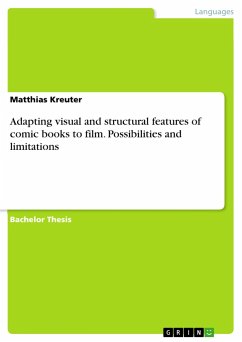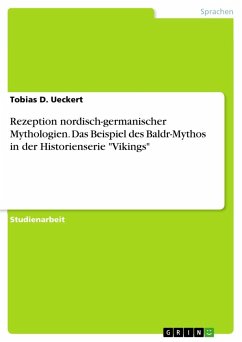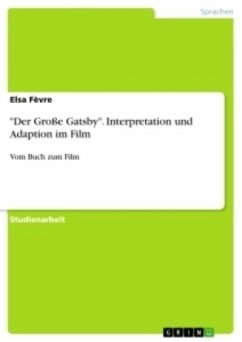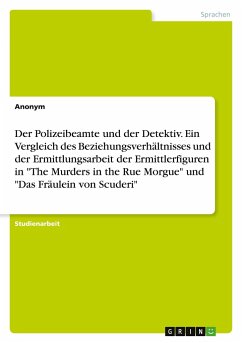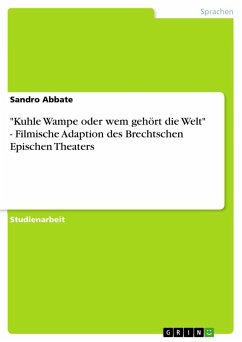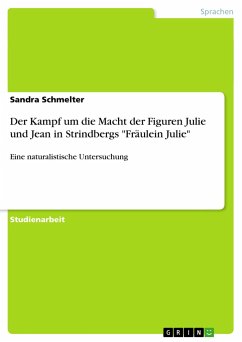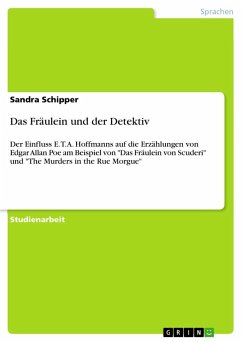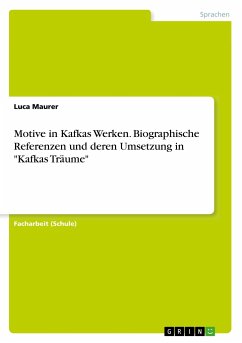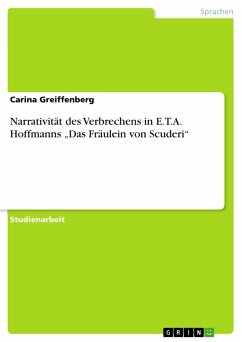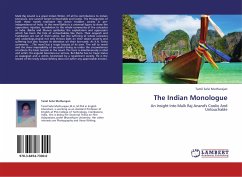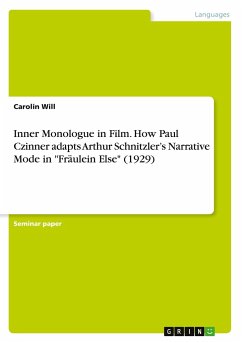
Inner Monologue in Film. How Paul Czinner adapts Arthur Schnitzler's Narrative Mode in "Fräulein Else" (1929)

PAYBACK Punkte
0 °P sammeln!
Seminar paper from the year 2020 in the subject Literature - Comparative Literature, grade: 15, Leuven Catholic University, language: English, abstract: This paper examines Paul Czinner's "Fräulein Else" from 1929, both as an adaption of Arthur Schnitzler's novella of the same name and as an individual project. The aim is to analyse how visual choices highlight the narrative and how elements of the original story are introduced into the new media.It will therefore examine whether and how specifically the change of media is responsible for the different interpretations. The focus will be on ho...
Seminar paper from the year 2020 in the subject Literature - Comparative Literature, grade: 15, Leuven Catholic University, language: English, abstract: This paper examines Paul Czinner's "Fräulein Else" from 1929, both as an adaption of Arthur Schnitzler's novella of the same name and as an individual project. The aim is to analyse how visual choices highlight the narrative and how elements of the original story are introduced into the new media.It will therefore examine whether and how specifically the change of media is responsible for the different interpretations. The focus will be on how the medium influences the depictions of the narrative instances through visuality. This is significant for the present work as narrative instances expresses themselves, according to Kuhn, primarily on a visual and a linguistic level.First, the difference between narrative instances in film and literature will be examined in a theoretical part. This will be based on Markus Kuhn's narrative model. Interesting approaches can be drawn from the work of Sandra Poppe's research on film adaptations and visuality as a connecting element between adapted work and adaption. The narrative instances of novella and film will then be examined for differences and similarities. The aim is to get an overview of whether and how the special type of narrative situation in Schnitzler's work was visually incorporated into the film.Films are an interface between writing and image in many regards. Starting from the screenplay, one can observe many functions of written text in movies. Therefore, transmediality is inherent to film. A special form of this correlation is adaption.Film adaptions of literary work struggled to be recognized as their own art form for the longest time. The status as secondary media has been abolished by now. Under this newer perspective, it is fruitful to study criticized movies through contemporary lenses.




